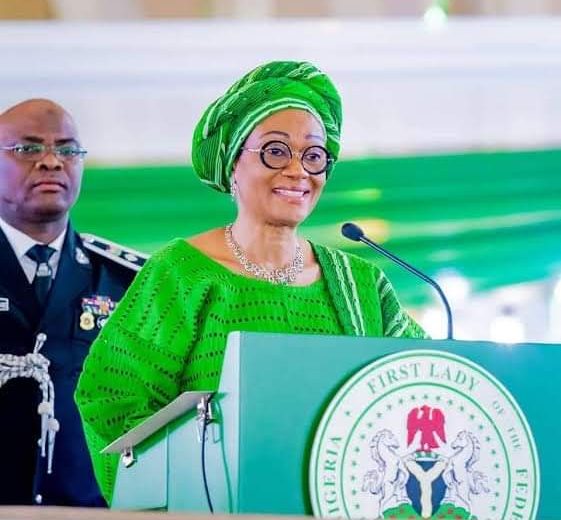Africa stands at the threshold of a significant opportunity in global trade, showcasing a rich array of products that hold immense potential for robust commerce with the European Union (EU). With a diverse array of offerings spanning agricultural commodities, minerals, textiles, and handicrafts, Africa holds the key to fostering stronger economic ties with the EU.
One of the fundamental pillars of trade lies in understanding the assets each region brings to the table. Africa boasts an abundance of agricultural treasures. From the famed coffee of Ethiopia to the exquisite cocoa of Ghana and the aromatic spices from Morocco, the continent is a hub of agricultural diversity. Additionally, Africa’s mineral wealth, encompassing gold, diamonds, copper, cobalt, and oil, is globally coveted, offering a valuable resource for international trade. The continent also contributes to the textile industry, with a burgeoning sector producing clothing, fabrics, and handicrafts. Furthermore, Africa’s reservoir of raw materials, including timber, rubber, cotton, and sisal, presents a spectrum of resources ripe for trade. The coastal nations of Africa also possess a bountiful supply of seafood, comprising various fish species, shrimp, and crustaceans, adding to the region’s trade potential. Lastly, Africa’s rich cultural heritage gives rise to unique handicrafts, artwork, jewellery, and cultural artefacts, offering a glimpse into its artistic wealth.
To capitalise on these resources and bolster trade between Africa and the EU, several strategic approaches can be employed. First and foremost, promoting regional trade within Africa itself can serve as a catalyst. Encouraging intra-African trade by increasing the production of textiles and manufactured goods could significantly stimulate commerce among African nations. By nurturing regional trade, Africa can fortify its economic foundations and enhance its position in the global market.
Furthermore, strengthening cooperation between the EU and African countries in trade in services is pivotal. An improved trade in services could facilitate diversification within supply chains, heightening resilience and reducing dependency on singular markets. This synergy would bolster economic stability and open up avenues for more comprehensive trade engagement between Africa and the EU.
The diversification of participation in global trade represents another crucial step for Africa. By expanding and diversifying their involvement in international trade and global value chains, African countries can mitigate poverty and promote inclusive growth. This diversification allows for a more resilient economic landscape, reducing vulnerability to market fluctuations and external shocks.
Harnessing the power of trade integration within Africa is an essential strategy. Greater integration can leverage technological advancements and demographic trends, enabling the continent to capitalise on emerging opportunities. By fostering connectivity and collaboration among African nations, a unified trade front can be forged, amplifying Africa’s presence on the global economic stage.
Moreover, a continuous assessment of trade relations between Africa and Europe is imperative. Identifying areas for improvement and capitalising on growing trade trends ensures that both regions stay attuned to each other’s evolving needs and preferences. Regular evaluations will enable the adaptation of strategies to align with the changing dynamics of the global market, enhancing the efficiency and efficacy of trade between Africa and the EU.
By embracing these strategic approaches, Africa can significantly bolster its trade ties with the European Union. The implementation of these strategies not only fosters economic growth but also paves the way for socio-economic development across the continent. As Africa and the EU embark on this journey of enhanced trade cooperation, it is crucial to recognise the mutual benefits that stem from this symbiotic relationship.
The significance of this burgeoning trade partnership goes beyond mere economic gains. It embodies the spirit of collaboration, cultural exchange, and mutual respect between two regions with diverse yet complementary strengths. Africa’s wealth of natural resources, coupled with the EU’s technological prowess and market access, creates a symbiosis that can drive sustainable development and prosperity for both parties.
Furthermore, this strengthened trade relationship between Africa and the EU aligns with broader global objectives, such as the United Nations Sustainable Development Goals (SDGs). It facilitates inclusive economic growth, promotes job creation, and fosters innovation, aligning with the shared aspirations for a more equitable and prosperous world.
At the moment, Africa stands at a pivotal juncture, armed with a treasure trove of products and resources that hold immense promise for trade with the European Union. By implementing strategic measures that promote regional trade, foster cooperation, diversify participation, harness integration, and assess relationships, Africa can unlock its full potential and forge a path towards sustained economic prosperity in collaboration with the EU.
As these strategies take root and yield fruit, a new era of economic synergy and shared prosperity between Africa and the European Union will undoubtedly emerge, shaping a brighter future for both regions.


